Keynote Speakers
Leggy A. Arnold
 Leggy A. Arnold is an Associate Professor of Chemistry and Biochemistry and founding member of the Milwaukee Institute for Drug Discovery. He received his Ph.D. degree from the University of Groningen (Netherlands) under supervision of Nobel Laureate Professor Ben Feringa and has worked as a postdoctoral researcher at the University of California San Francisco under supervision of Dr. Kip Guy. Before starting at UWM in 2009, Dr. Arnold worked at St. Jude Children’s Research Hospital as a Staff Scientist and helped form the Department of Chemical Biology and Therapeutics. Dr. Arnold’s current research interests are focused on the discovery and development of new drugs targeting the vitamin D receptor and the GABAA receptor to develop new treatments for ovarian cancer, asthma, and neuropathic pain. Furthermore, he is the founding member and CSO of Pantherics Incorporated, which is developing new treatments for diseases like asthma by targeting the peripheral GABAA receptors. For more information visit the Arnold Lab website.
Leggy A. Arnold is an Associate Professor of Chemistry and Biochemistry and founding member of the Milwaukee Institute for Drug Discovery. He received his Ph.D. degree from the University of Groningen (Netherlands) under supervision of Nobel Laureate Professor Ben Feringa and has worked as a postdoctoral researcher at the University of California San Francisco under supervision of Dr. Kip Guy. Before starting at UWM in 2009, Dr. Arnold worked at St. Jude Children’s Research Hospital as a Staff Scientist and helped form the Department of Chemical Biology and Therapeutics. Dr. Arnold’s current research interests are focused on the discovery and development of new drugs targeting the vitamin D receptor and the GABAA receptor to develop new treatments for ovarian cancer, asthma, and neuropathic pain. Furthermore, he is the founding member and CSO of Pantherics Incorporated, which is developing new treatments for diseases like asthma by targeting the peripheral GABAA receptors. For more information visit the Arnold Lab website.
Claudiu Gradinaru
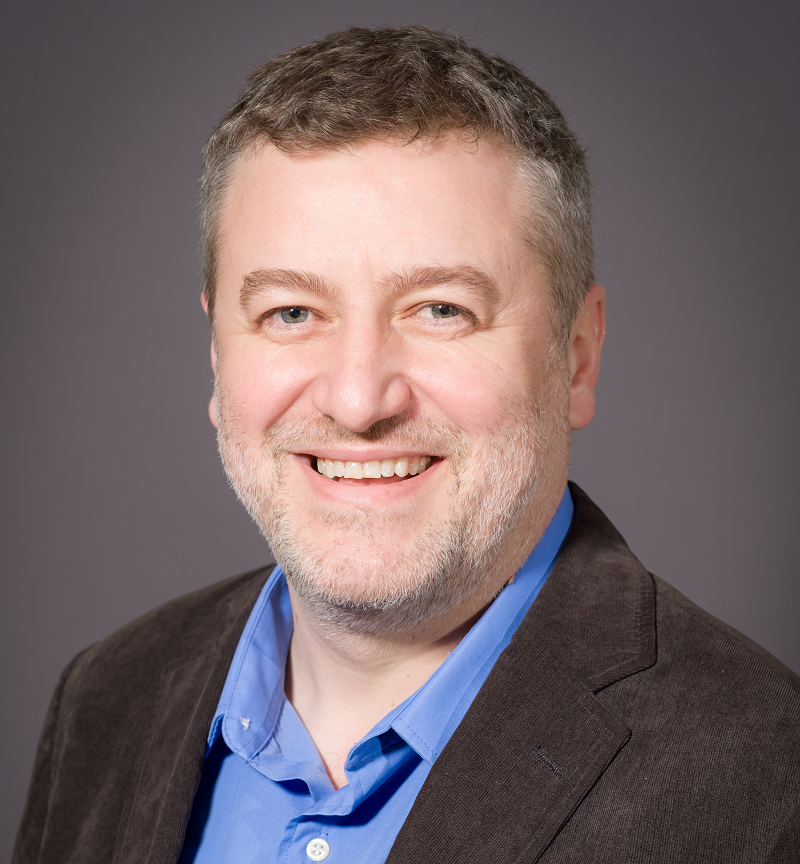 Claudiu Gradinaru obtained his PhD in Biophysics at the VU University Amsterdam in 2001 with a thesis on ultrafast spectroscopy of the primary events in photosynthesis. Since 2006 he has been leading the Single-Molecule Biophysics Group at University of Toronto, and since 2014 he has been Chair of the Department of Chemical and Physical Sciences. His research focuses on understanding protein conformations, interactions and dynamics primarily in the area of intrinsically disordered proteins (IDPs) and G-protein-coupled receptors (GPCRs), through the use of multiparameter single-molecule fluorescence (SMF) spectroscopy. For more information visit the Gradinaru Lab website.
Claudiu Gradinaru obtained his PhD in Biophysics at the VU University Amsterdam in 2001 with a thesis on ultrafast spectroscopy of the primary events in photosynthesis. Since 2006 he has been leading the Single-Molecule Biophysics Group at University of Toronto, and since 2014 he has been Chair of the Department of Chemical and Physical Sciences. His research focuses on understanding protein conformations, interactions and dynamics primarily in the area of intrinsically disordered proteins (IDPs) and G-protein-coupled receptors (GPCRs), through the use of multiparameter single-molecule fluorescence (SMF) spectroscopy. For more information visit the Gradinaru Lab website.
Kalina Hristova, Johns Hopkins University
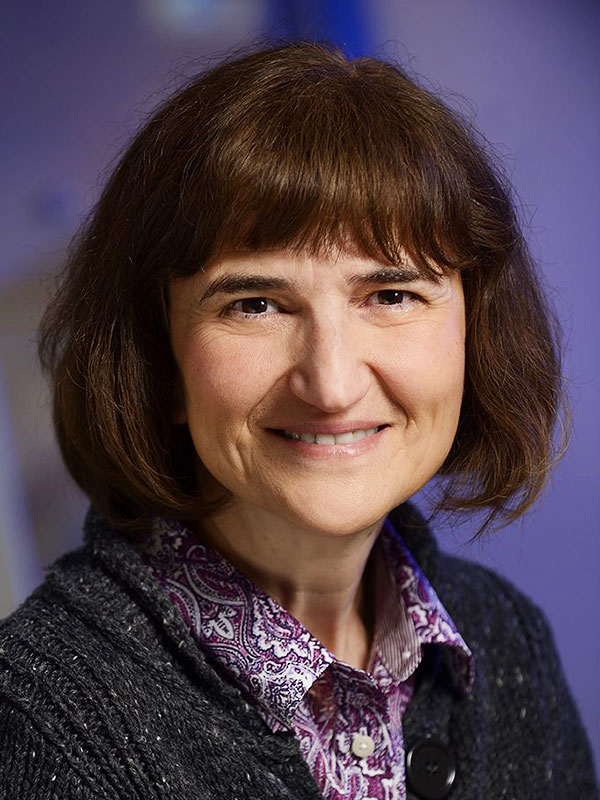 Kalina Hristova received her BS degree from the University of Sofia, Bulgaria, and her PhD degree from Duke University, USA. She did post-doctoral work at the University of California, Irvine. She joined the faculty at Johns Hopkins University as an Assistant Professor in 2001. Now she is a Professor and the Marlin U. Zimmerman Faculty Scholar in the Departments of Materials Science and Engineering and Biomedical Engineering at Johns Hopkins. Kalina is a recipient of the Margaret Oakley Dayhoff award from the American Biophysical Society. The main focus of the research in her laboratory is the thermodynamic and structural principles that underlie membrane protein folding and signal transduction across biological membranes. More information about Kalina’s research is available at the BMMB Laboratory website.
Kalina Hristova received her BS degree from the University of Sofia, Bulgaria, and her PhD degree from Duke University, USA. She did post-doctoral work at the University of California, Irvine. She joined the faculty at Johns Hopkins University as an Assistant Professor in 2001. Now she is a Professor and the Marlin U. Zimmerman Faculty Scholar in the Departments of Materials Science and Engineering and Biomedical Engineering at Johns Hopkins. Kalina is a recipient of the Margaret Oakley Dayhoff award from the American Biophysical Society. The main focus of the research in her laboratory is the thermodynamic and structural principles that underlie membrane protein folding and signal transduction across biological membranes. More information about Kalina’s research is available at the BMMB Laboratory website.
Anne Kenworthy, University of Virginia
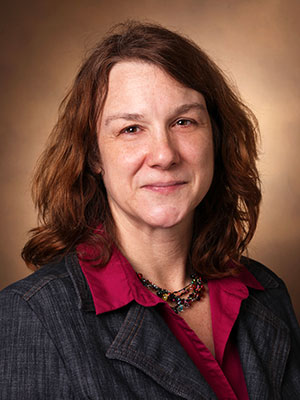 Anne Kenworthy, PhD is Associate Director of the Center for Membrane and Cell Physiology and Professor of Molecular Physiology and Biological Physics at the University of Virginia School of Medicine. She received her BA from Kenyon College and PhD from Duke University Medical Center, and carried out postdoctoral studies at The Johns Hopkins University and the NIH. The major goal of her research program is to elucidate the structure, dynamics, and function of membrane domains. To do so, she utilizes quantitative fluorescence-based approaches to analyze membrane domains and protein and lipid dynamics both in living cells and model membrane systems. Her work has lead to a number of important advances, including insights into the structure and dynamics of lipid rafts, the discovery of novel intracellular trafficking mechanisms, the identification of new mechanisms by which caveolin and caveolae control cellular functions, and the development of mathematical models to analyze diffusion and reaction-diffusion behaviors by confocal FRAP. For more information, visit the Kenworthy Lab website.
Anne Kenworthy, PhD is Associate Director of the Center for Membrane and Cell Physiology and Professor of Molecular Physiology and Biological Physics at the University of Virginia School of Medicine. She received her BA from Kenyon College and PhD from Duke University Medical Center, and carried out postdoctoral studies at The Johns Hopkins University and the NIH. The major goal of her research program is to elucidate the structure, dynamics, and function of membrane domains. To do so, she utilizes quantitative fluorescence-based approaches to analyze membrane domains and protein and lipid dynamics both in living cells and model membrane systems. Her work has lead to a number of important advances, including insights into the structure and dynamics of lipid rafts, the discovery of novel intracellular trafficking mechanisms, the identification of new mechanisms by which caveolin and caveolae control cellular functions, and the development of mathematical models to analyze diffusion and reaction-diffusion behaviors by confocal FRAP. For more information, visit the Kenworthy Lab website.
Yinglong Miao, University of Kansas
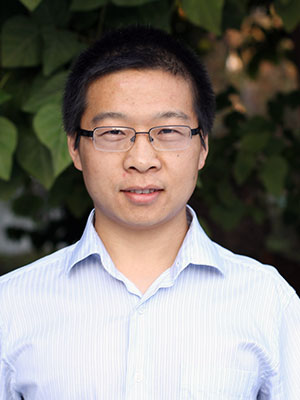 Yinglong Miao is an Assistant Professor in the Department of Molecular Biosciences and Center for Computational Biology at the University of Kansas. Yinglong obtained Ph.D. in Computational Chemistry in the lab of Peter Ortoleva at Indiana University. His graduate work was focused on all-atom multiscale modeling of infectious viruses and other bionanosystems. He subsequently began his postdoctoral research with Jeremy Smith and Jerome Baudry at the University of Tennessee and Oak Ridge National Laboratory. There he combined the world-class experimental (neutron scattering and NMR) and supercomputing resources to investigate the structural dynamics and function of protein enzymes that are responsible for drug metabolism. Yinglong then moved to Andy McCammon’s lab at the Howard Hughes Medical Institute and University of California San Diego, where he worked on both method developments and cutting-edge applications in accelerated biomolecular simulations and drug discovery of the G-protein-coupled receptors. Yinglong develops novel theoretical and computational methods, with applications in protein folding, molecular recognition, cellular signaling and computer-aided drug design.
Yinglong Miao is an Assistant Professor in the Department of Molecular Biosciences and Center for Computational Biology at the University of Kansas. Yinglong obtained Ph.D. in Computational Chemistry in the lab of Peter Ortoleva at Indiana University. His graduate work was focused on all-atom multiscale modeling of infectious viruses and other bionanosystems. He subsequently began his postdoctoral research with Jeremy Smith and Jerome Baudry at the University of Tennessee and Oak Ridge National Laboratory. There he combined the world-class experimental (neutron scattering and NMR) and supercomputing resources to investigate the structural dynamics and function of protein enzymes that are responsible for drug metabolism. Yinglong then moved to Andy McCammon’s lab at the Howard Hughes Medical Institute and University of California San Diego, where he worked on both method developments and cutting-edge applications in accelerated biomolecular simulations and drug discovery of the G-protein-coupled receptors. Yinglong develops novel theoretical and computational methods, with applications in protein folding, molecular recognition, cellular signaling and computer-aided drug design.
Graeme Milligan, University of Glasgow
 I am currently Professor of Molecular Pharmacology and Gardiner Professor of Biochemistry at University of Glasgow in Scotland, where I have been based since 1986. I also currently act as Dean of Research of the College of Medical, Veterinary and Life Sciences, the largest of the 4 Colleges that comprise the University. The major focus of my research centers on the pharmacology and function of G protein-coupled receptors, an area in which I have published some 450 articles. Please visit Prof. Milligan’s webpage for more information about his research.
I am currently Professor of Molecular Pharmacology and Gardiner Professor of Biochemistry at University of Glasgow in Scotland, where I have been based since 1986. I also currently act as Dean of Research of the College of Medical, Veterinary and Life Sciences, the largest of the 4 Colleges that comprise the University. The major focus of my research centers on the pharmacology and function of G protein-coupled receptors, an area in which I have published some 450 articles. Please visit Prof. Milligan’s webpage for more information about his research.
Paul Park, Case Western Reserve University
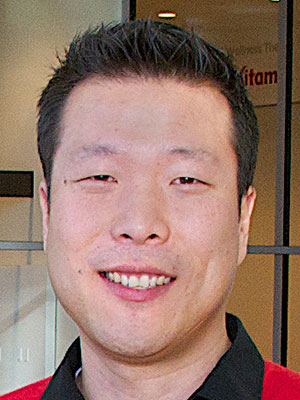 Paul Park is currently an assistant professor in the Department of Ophthalmology and Visual Sciences at Case Western Reserve University. He received his Ph.D. degree in the Department of Pharmaceutical Sciences at the University of Toronto. Dr. Park utilizes a multidisciplinary approach to understand the mechanism of action of G protein-coupled receptors. His current research focus is on the structure and function of rhodopsin in photoreceptor cells of the retina and in understanding the mechanism by which mutations in rhodopsin lead to retinal degenerative disorders. More information may be found at the Park Lab website.
Paul Park is currently an assistant professor in the Department of Ophthalmology and Visual Sciences at Case Western Reserve University. He received his Ph.D. degree in the Department of Pharmaceutical Sciences at the University of Toronto. Dr. Park utilizes a multidisciplinary approach to understand the mechanism of action of G protein-coupled receptors. His current research focus is on the structure and function of rhodopsin in photoreceptor cells of the retina and in understanding the mechanism by which mutations in rhodopsin lead to retinal degenerative disorders. More information may be found at the Park Lab website.
Valerică Raicu, University of Wisconsin-Milwaukee
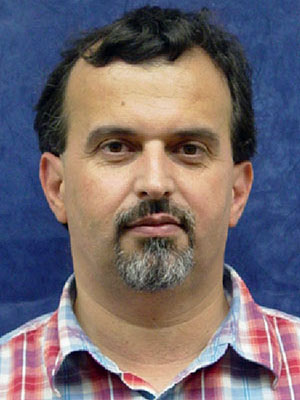 Valerică Raicu is a Professor in the Physics Department and affiliated faculty in the Biological Sciences Department at the University of Wisconsin-Milwaukee (UWM). Professor Raicu’s main research interests span the development of spectroscopic and micro-spectroscopic technology and applications to the study of protein-protein and cell-cell interactions. His focus over the past decade has been investigation of G-Protein coupled receptor oligomerization in living cells and the biological role it may play. He has authored or co-authored numerous peer-reviewed articles, book chapters and books on various topics in biophysics, as well as several patents in the area of optical micro-spectroscopy. He also currently serves as the Director of the UWM Small Businesses Collaboratory and Biophysical Spectroscopy Laboratory. For more information, please visit the Raicu Research Group website.
Valerică Raicu is a Professor in the Physics Department and affiliated faculty in the Biological Sciences Department at the University of Wisconsin-Milwaukee (UWM). Professor Raicu’s main research interests span the development of spectroscopic and micro-spectroscopic technology and applications to the study of protein-protein and cell-cell interactions. His focus over the past decade has been investigation of G-Protein coupled receptor oligomerization in living cells and the biological role it may play. He has authored or co-authored numerous peer-reviewed articles, book chapters and books on various topics in biophysics, as well as several patents in the area of optical micro-spectroscopy. He also currently serves as the Director of the UWM Small Businesses Collaboratory and Biophysical Spectroscopy Laboratory. For more information, please visit the Raicu Research Group website.
